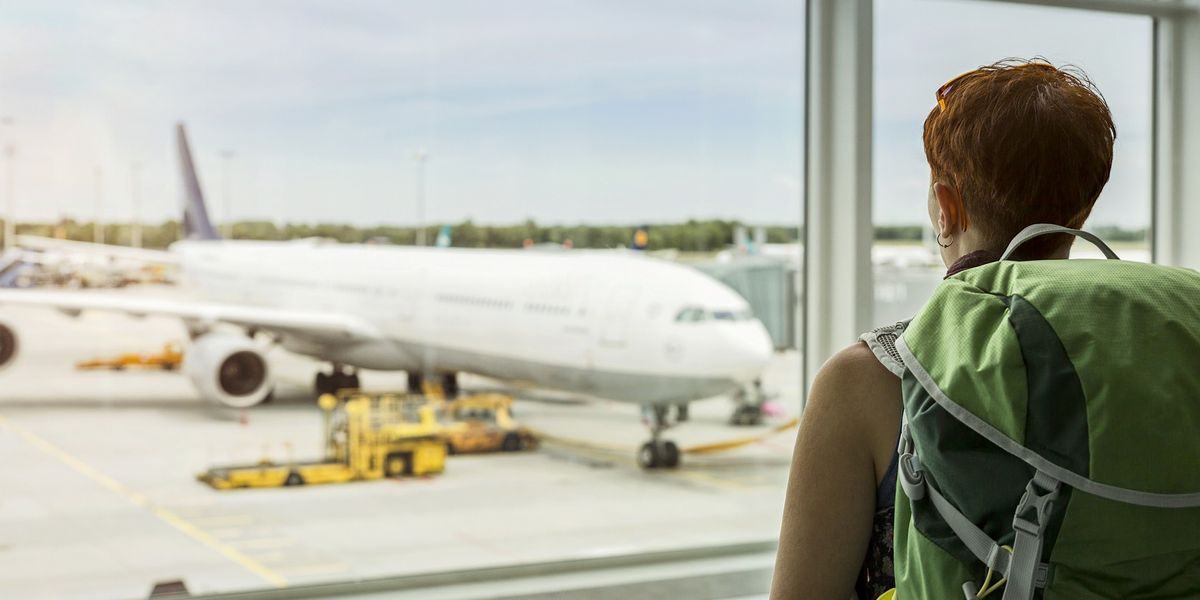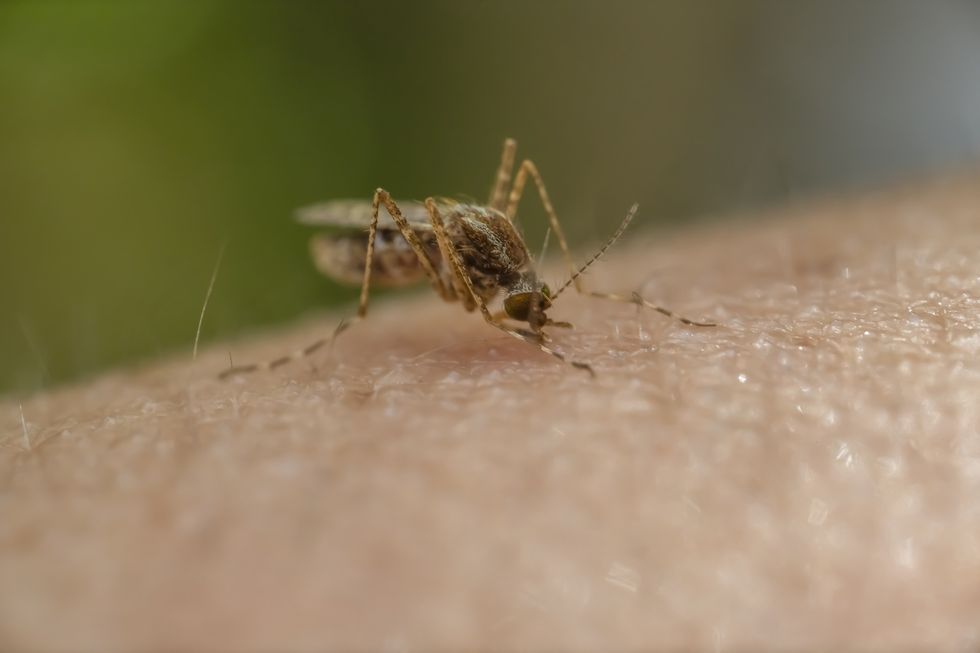Britons issued travel warning as cases of ‘potentially life-threatening’ disease rise in England, Wales and Nothern Ireland

Britons have been warned of a rise in travel-acquired malaria cases, with an increase in diagnoses across England, Wales and Northern Ireland. Malaria is a disease caused by a parasite that can be passed on to humans by mosquitoes.
The number of imported malaria cases diagnosed in 2023 was higher than they have been in 20 years, as reported by the UK Health Security Agency (UKHSA).
GOV.UK said: “New data from the UKHSA, published ahead of World Malaria Day (April 25), shows an increase in malaria diagnosed in England, Wales and Northern Ireland, with reported cases exceeding 2,000 for the first time since 2001. Cases were confirmed in individuals who had recently been abroad.
“The number of cases highlights the importance of taking precautions to minimise the risk of malaria when travelling abroad.
Britons should consult travel advice before going abroad
GETTY IMAGES
“In 2023, there were 2,004 cases of malaria confirmed in England, Wales and Northern Ireland following travel abroad, compared to 1,369 in 2022.”
The rise in cases has been linked to the “resurgence of malaria in many countries”, coupled with an increase in overseas travel post-pandemic.
The most recent guidance by Travel Health Pro – which was set up by the Department of Health to protect the health of British travellers – reads: “Malaria is a serious and potentially life-threatening disease, transmitted to humans through the bite of infected female Anopheles mosquitoes.
“Malaria is widely distributed throughout tropical regions in Africa, Asia, Central and South America, Hispaniola (Dominican Republic and Haiti), the Middle East and Oceania (islands in the Pacific Ocean between Asia and the Americas).”
Britons were warned that symptoms can be non-specific and flu-like.
Malaria symptoms
- Fever
- Headache
- Fatigue
- Abdominal discomfort
- Muscle aches
- Cough
- Diarrhoea
The UKHSA added: “Although symptoms of malaria from several species of the Plasmodium parasite can cause severe disease, illness with Plasmodium falciparum can progress rapidly and cause life-threatening complications if prompt treatment is not given.”
What Britons need to do
Holidaymakers should be careful when travelling and ensure they take the necessary precautions.
The UKHSA said: “Following the ABCD of malaria prevention – ‘Awareness of risk, Bite prevention, Chemoprophylaxis and Diagnose promptly and treat without delay’ – can help travellers to be protected against the infection.
“UK travellers are reminded to seek and follow travel advice for their destination, which may include antimalarials and mosquito bite avoidance measures. There is no licensed vaccine against malaria for travellers, but vaccines are available for other travel-associated infections.”
LATEST DEVELOPMENTS

Malaria is transmitted to humans through the bite of infected female Anopheles mosquitoes
GETTY IMAGES
Britons were urged to consult Travel Health Pro, the “one-stop-shop for information to help people plan their trip abroad”.
“Travellers should be aware that even if they have visited or lived in a malarious country before, they will not have the same protection against malaria as local residents and are still at risk. Travellers should consult their general practice, pharmacist, or travel clinic four to six weeks before their trip for individual advice and malaria prevention tablets where required.”
Holidaymakers heading to countries where there are insects that spread diseases, for example, malaria, dengue and zika, should use insect repellent, cover exposed skin, and sleep under a treated bed net.
Anyone feeling unwell during their travels should seek medical help while away. Once back in the UK, individuals feeling unwell should promptly seek medical attention, also informing their healthcare provider that they have been travelling recently.
Britons should not be fearful if they ensure they exercise caution by taking proactive measures.
Director of the UKHSA Malaria Reference Laboratory (MRL) Professor Peter Chiodini said: “All malaria cases are preventable and simple steps like using insect repellent, covering exposed skin, sleeping under treated bed nets and taking malaria prevention tablets can lower infection risks.”
However, he did issue a warning: “While malaria can affect anyone, the majority of Plasmodium falciparum malaria cases in the UK occur in those of African background. Even if you have visited or lived in a country before, you will not have the same protection against infections as local people and are still at risk. We are working in partnership with communities at greater risk to improve their access to and use of effective malaria prevention measures.”
Related
Calls for over 60 free bus travel update from Department…
Calls for free bus travel for those over the age of 60 in England is gaining more attention after an increase of support. Unlike those in Wales, Scotland, and N
Major UK train station is one of the worst places…
Pickpockets are a problem across the UK, but one place is the worst for having your belongings stolen. According to the British Transport Police (BTP), just und
UK Snow Travel Chaos: Kent, East Sussex, West Sussex, Hampshire,…
UK Snow Travel Chaos: Kent, East Sussex, West Sussex, Hampshire, Wiltshire, Surrey, Berkshire, Greater London, Essex, Suffolk, Hertfordshire,
‘Only travel if necessary’ warning as UK’s busiest motorway shut…
NATIONAL Highways have issued an urgent warning to drivers as one the UK's biggest motorways shuts for the weekend. They has urged drivers to re-plan their rou











